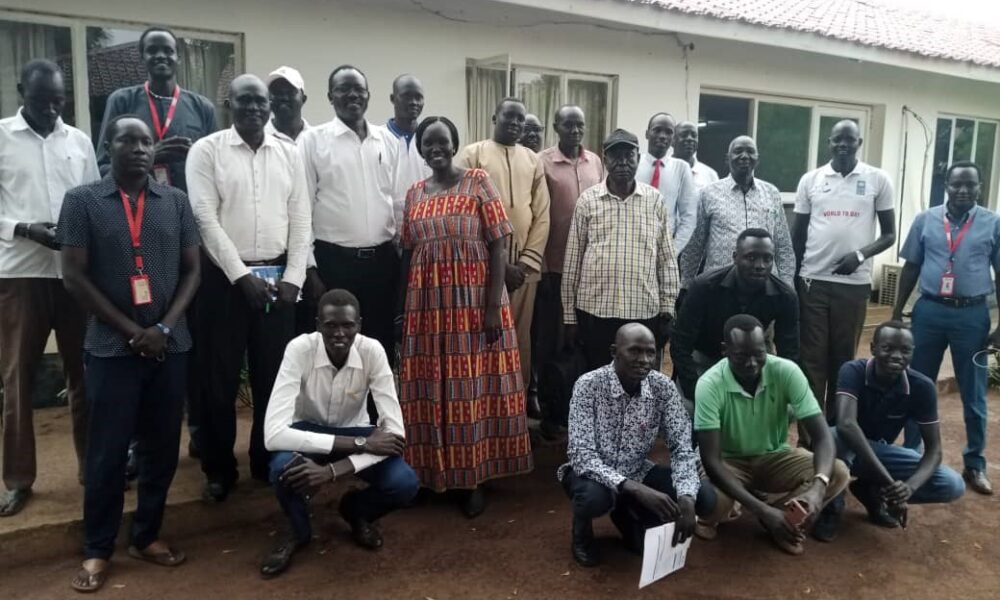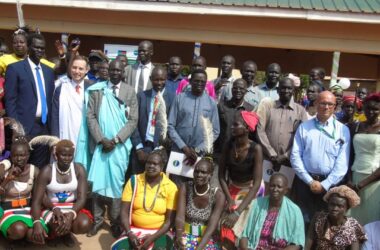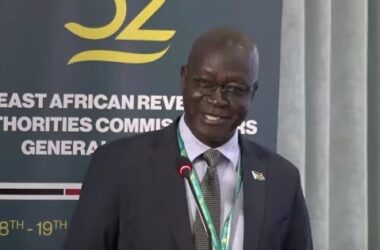By Yang Ater Yang
Inadequate water points affect the population of Lakes State compelling women to travel long distances, taking many hours of their daily routine.
Acinkoc Henry, a representative of Cipuou-mat Development Association, raised the plight of women, in Lakes State.
“There are parts of Lakes State where a woman can walk for more than 3 to 4 hours in order to bring water home,” Acinkoc said.
She cited women, far away from Payam headquarters where boreholes are located, as among those who walk long distances to water points.
“Women are the ones with so many problems in terms of water,” she emphasized
According to her, some of the women engage in vegetable growing to feed their families and also provide their children with school requirements out of the proceeds.
“The little money which they can get from growing vegetable helps them pay for their children’s schools, food and soap. This is very helpful to us,” she stressed.
Acinkoc appealed to development partners to help provide water points across the State in order to help shorten walking distances for the women.
She was speaking during evaluation of Water, Sanitation and Hygiene (WASH) project in the state.
The WASH project entails the availability and maintenance of water points, and household sanitation such as the provision and use of washing racks, drying lines, rubbish pits, pit latrines and hand washing facilities.
Lakes State Director for Water, Sanitation and Hygiene, Barnaba Makuac Magol said that major rehabilitation of boreholes and a few minor ones were done in the first year of the project.
“We achieved 40 boreholes in the first year and in the second year we achieved 45 boreholes and last year, we achieved 64 boreholes plus 6 upgrading which is 70 boreholes,” he explained.
He emphasized that as the project is ending, the sustainability has been left to the community, and government to supervise.
Magol said, through community sensitization, the community accepted to sustain water points by collecting small tariffs and some of the villages buy spare parts.
“What is discouraging the community is the fluctuations of dollar in the market but the entire they have accepted,” he pointed out.
As part of sustainability, Water Association, Pump Mechanic Association and Water Management Committee are formed at each point to collect tariffs.
“Anybody, when the money is collected from the hand pumps and is misused, then the law will be able to ask him to pay back and he will be punished,” Magol warned.
He said the measures are set for the sustainability of the boreholes and Water Yard, while for CLTS, bylaws can be set for everybody to abide by in accordance to the guidelines of sanitation and hygiene
In Lakes State, WASH project is implemented by Center for Emergency Development Support (CEDS) in three counties of Rumbek East, Rumbek Central and Rumbek North.
The project is funded by donations from the government of the Netherlands, through the United Nations International Children’s Fund (UNICEF)
According to the organization’s Director, Simon Bol, construction of pit latrines is the only element WASH program that is lagging, in Lakes State.
Under Community Led Total Sanitation (CLTS) program, triggered communities are supposed to construct their own household latrine without any support.
“That’s a zero subsidy of the CLTS,” Bol emphasized.
However, Bol attributed the slow pace of the CLTS program to cultural perceptions and norms, saying, changing the mindset of the community takes time.
“Because of our cultural concept, it has been very difficult for our community to accept it and changing of the mindset has been very slow,” he said.
On a good note, Bol cited that despite the sluggish coping, many members of the community have embraced and constructed their household pit latrines.
Samuel Aberic Makur, Deputy RRC Chairperson Lakes State underscored the importance of WASH components in human life.
Makur appeals to UNICEF to continue funding the project to improve the health of the people in the State.
“The health of individuals is very important because once they are affected in terms of a disease, it will also affect all of us,” he said.
He said it is the concern of the government for the grassroots community to be healthy by drinking safe, clean water and also avoid open defecation.
“You know, the government has its own role in regards to health, and our role is to give the message to the community and to sensitize them to do some of other things by their own,” Makur added.



